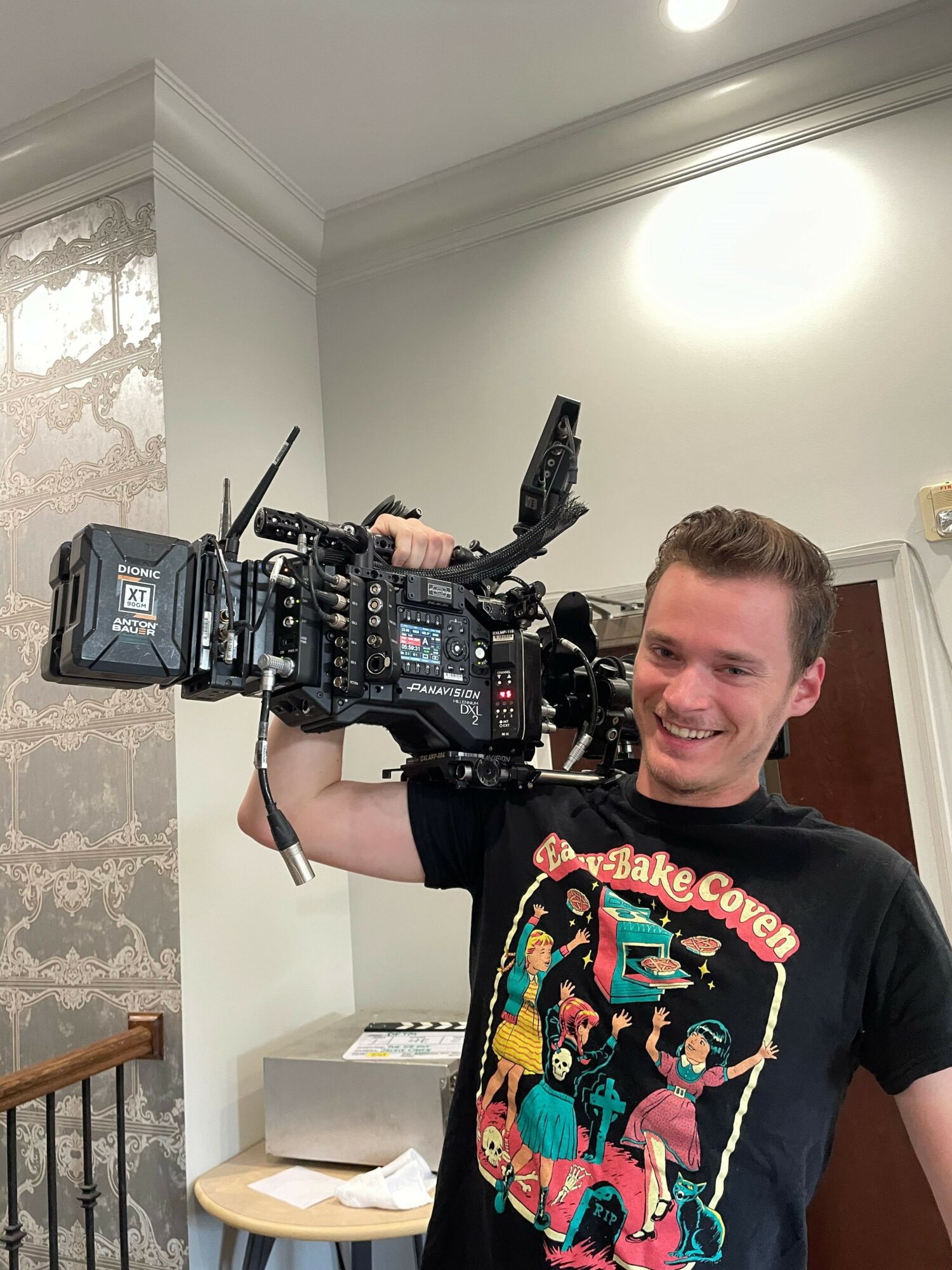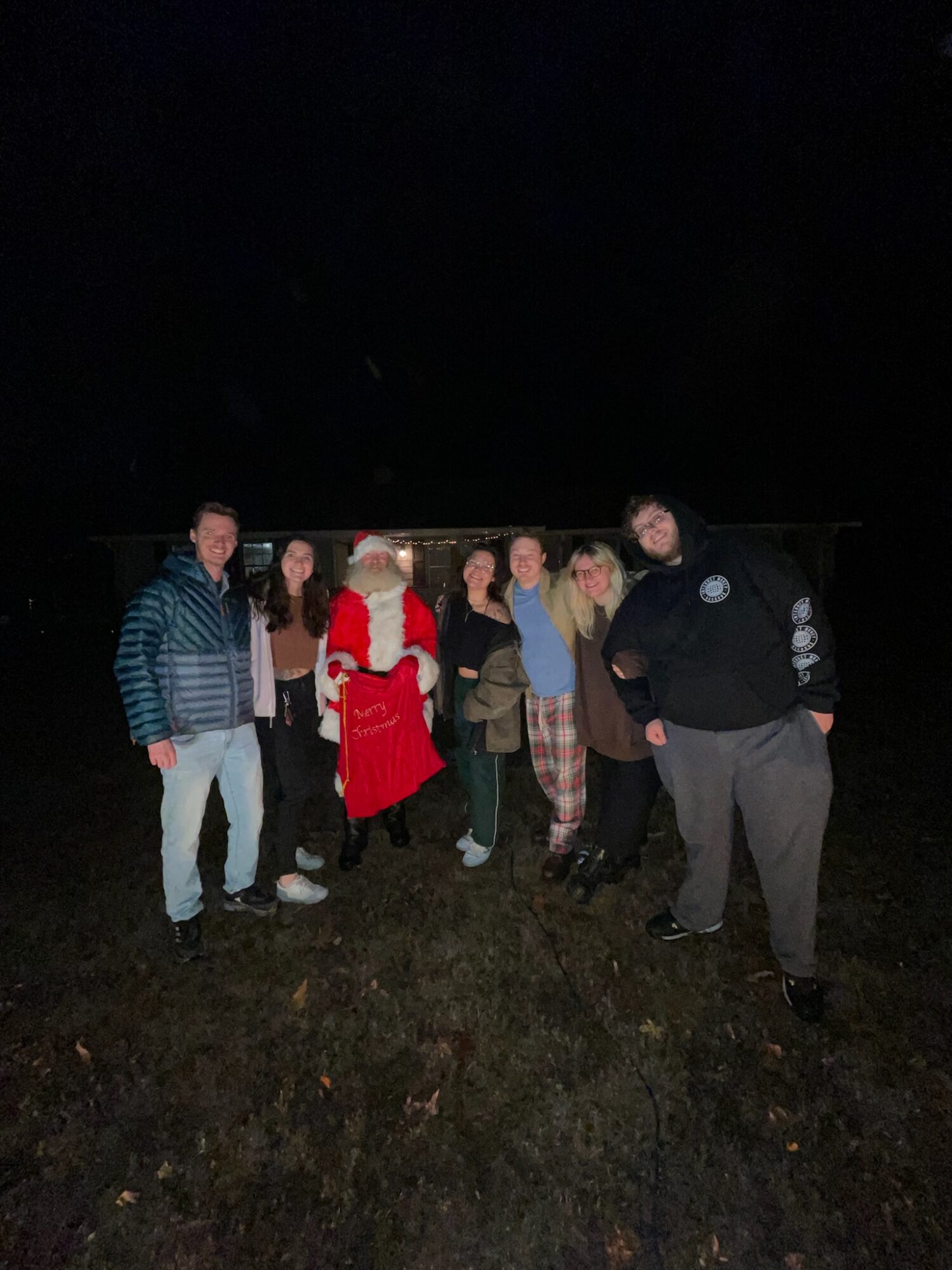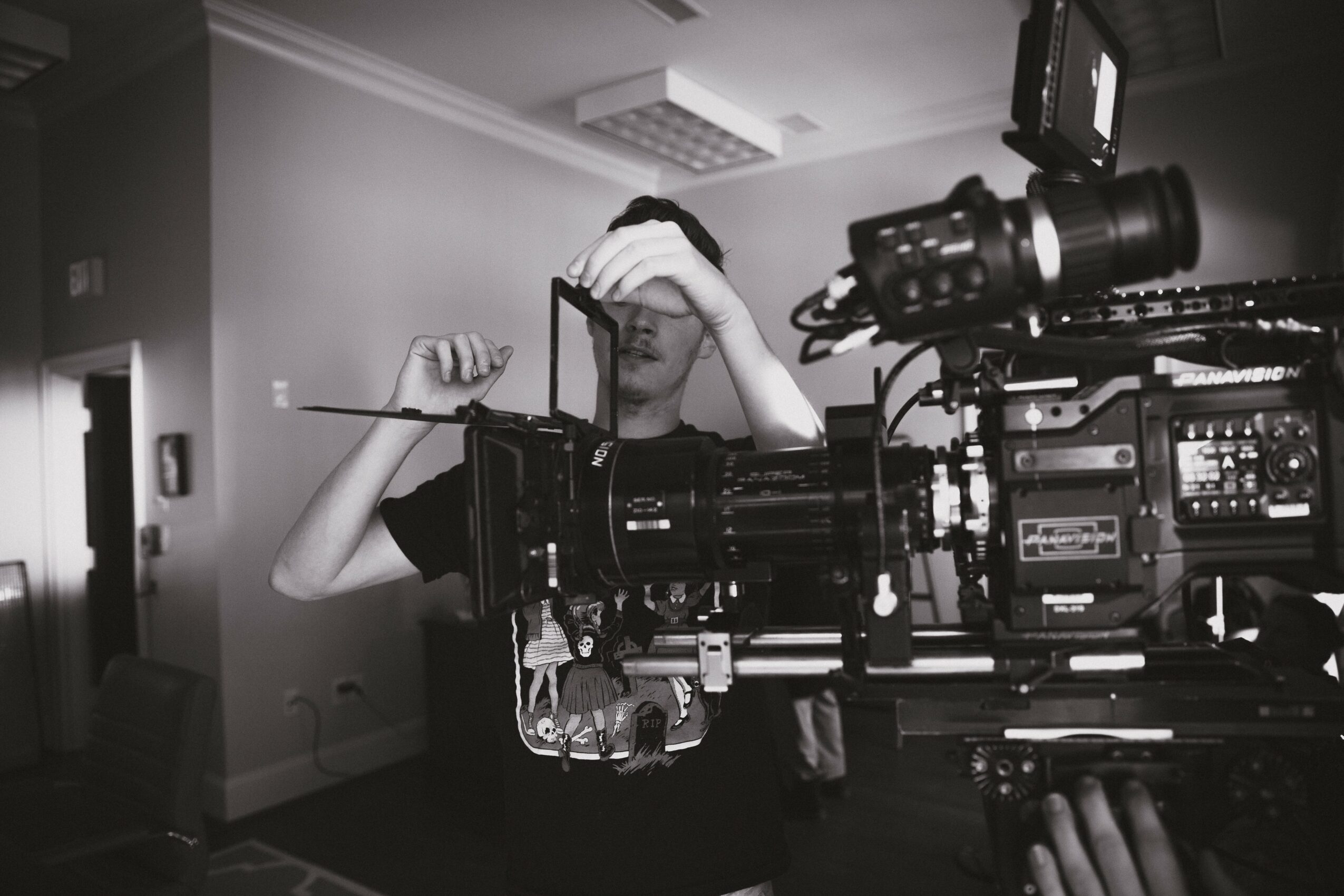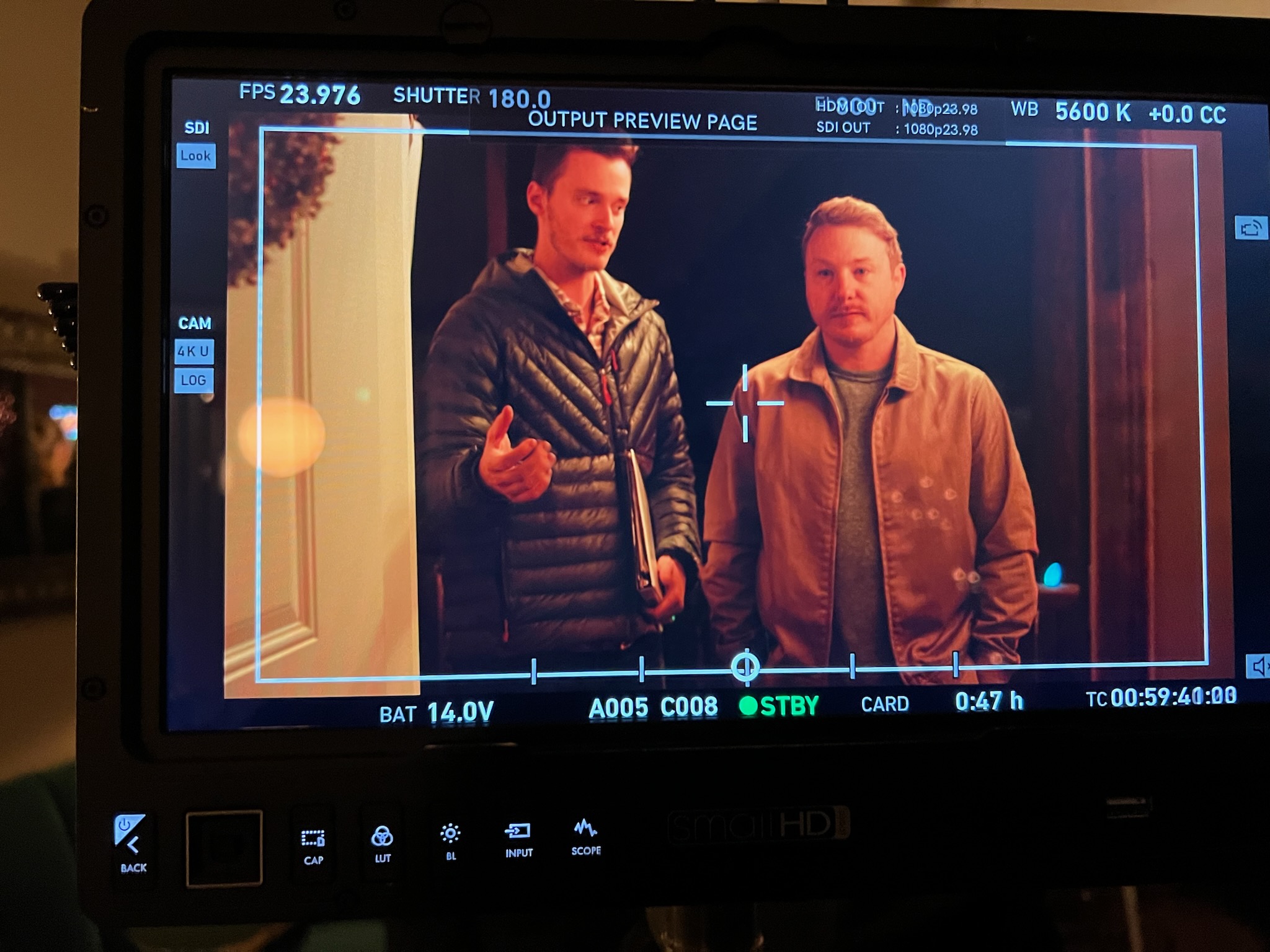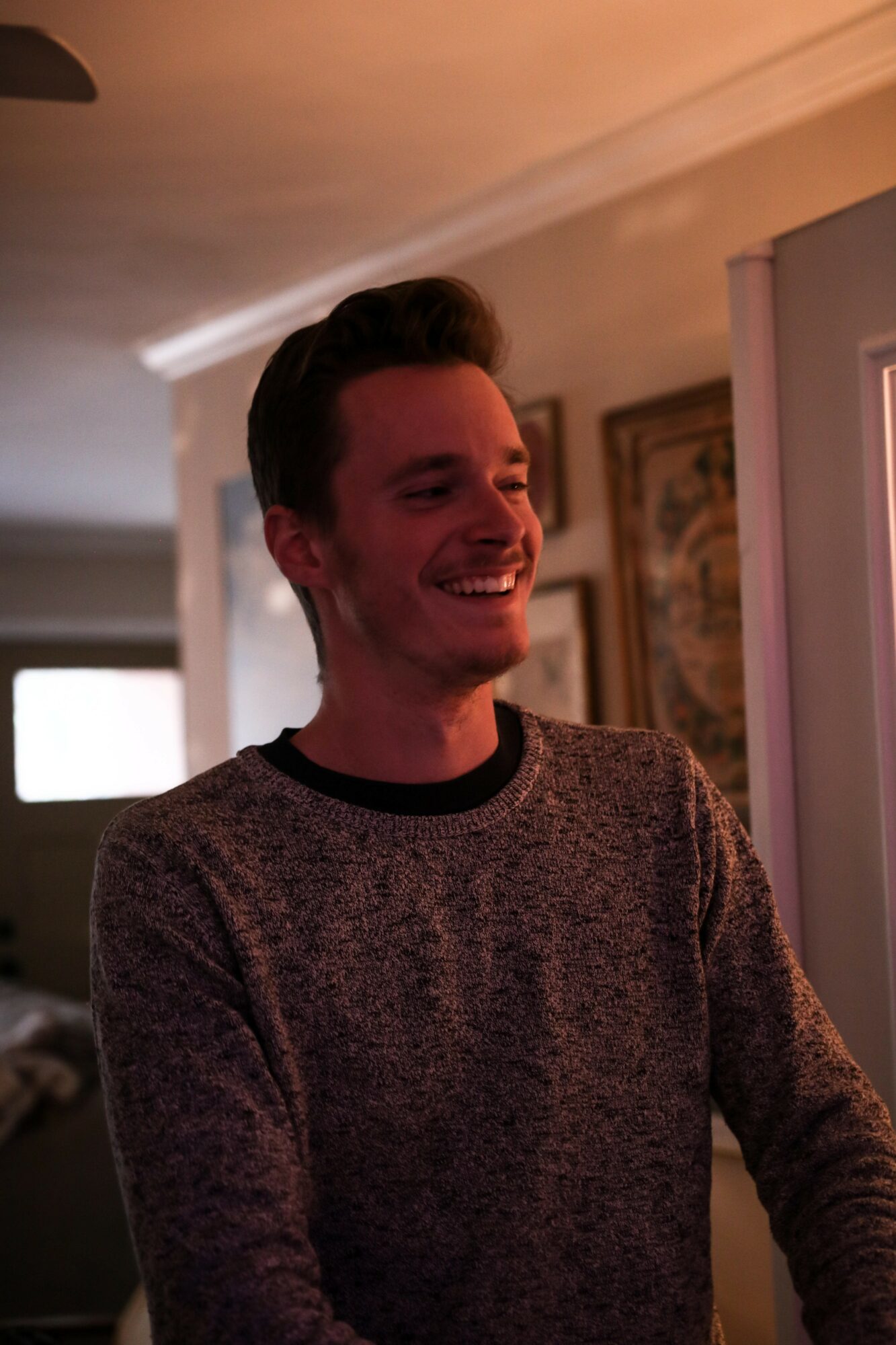

Today we’d like to introduce you to Jason Bartholomew.
Jason, we appreciate you taking the time to share your story with us today. Where does your story begin?
I grew up in a small town in Michigan. I was always a curious kid. I loved the outdoors, hanging out with friends, reading, and watching movies. I always had a creative imagination. When I was in middle school I started learning how to use a video camera and edit video clips together.
I never seriously considered filmmaking as a career until I got to college and it came time to sign a major. I had was taking a film history class, analyzing movies from Orson Welles, Stanley Kubrick, and many others. I began to appreciate film as an art form. And one of the leading minds behind these films? The director. I wanted to become an auteur of film. I joined a film production club on campus. I met other like-minded people. People I would spend the rest of college collaborating with. I learned how to write scripts, direct, produce, operate cameras, sound recording, lighting, production design. I loved every minute of it.
I It was around this time I reconnected with an uncle of mine I hadn’t seen in years at a funeral. We started talking about film. He worked in the film industry in Atlanta. We talked for hours about our favorite films, and what why we decided to pursue filmmaking. We kept in touch for the rest of the time I was in college. He invited me one summer to come down to Atlanta and try looking for PA work. Not only did I have a film mentor, but I had someone that could show me around Atlanta. I was able to get my first job on a professional set as a PA for a commercial. I loved it. I couldn’t wait to do more. I did three more until it was time to go back to school for my junior year.
I started getting opportunities to direct short films in the club, and in higher level production classes. I could see my directing getting better with every film I made. A big piece of advice I got was any aspiring director wouldn’t make money directing at first, so I picked a film craft that I enjoyed: Camera. I enjoyed operating the camera, setting up the shot, and playing with fancy camera equipment. I learned everything I could about every piece of camera gear the school had.
The next summer, I found myself back in Atlanta. I booked two commercials right off the bat. I was so excited. It was looking to be a great summer. When things looked like they couldn’t get any better, my uncle told me to email the location manager of the show he was on. They had a big week coming up and would need some extra hands. Nervous, I sent her an email. She emailed back saying she’d like to set up an interview and to come to the production office. I came to the office and met her. I told her about my previous film experience and how I was in Atlanta to learn everything I could about the film industry. She said locations would be the perfect place for me. Locations works with every department on set, and acts as the liason between the production and the “real world”.
It was brutal work. Working 15 hour days most days in the hot sun. Carrying tents and dragging portable AC units up gravel hills. At times I hated it. But I met so many awesome people, and being there in real time creating movie magic was a dream come true. I knew my future was in Atlanta, making movies. After that, I finished my final year of college and graduated just in time to face a huge new challenge: the Covid 19 pandemic. Everyone I talked to had no idea what this meant for the film industry. Finally I heard whispers of shows starting back up in Atlanta. I reached out to a locations person I’d met previously and he had a friend staffing up a newly-formed covid-19 compliance department. I reached out to her, and she agreed to hire me.
I decided it was time to move. I threw everything I could fit in my car, and drove down to Atlanta. My uncle told me I could stay with him for a little while. About a week and half later, I started my new job working on a musical. While it wasn’t as physically demanding as working in locations, it was way more degrading. Telling crew members they needed to keep their masks on, and reminding them they needed to covid test by the end of the week was torment. Most crew hated the rules. But regardless, I did my job the best I could.
I introduced myself one day to the B camera operator. He was very nice. I introduced me to his 1st and 2nd ACs, who gave me advice and showed me their camera cart. I tried to get to know every member of the camera team. I wanted them to know I was serious about working in camera. One day the A camera 1st AC came up to me and said “Panavision’s going to hire you.” I thought he was joking. The next day I got a call from the manager at Panavision saying “you were recommended to us by a solid reference,” and asked when we could set up an interview. I was ecstatic. When the show wrapped I interviewed with them and anxiously awaited a response.
The day I drove back to Michigan for the holidays I heard back. I got the job at Panavision in the shipping department. I couldn’t believe it. I worked for 6 months in the shipping department, scanning in equipment, shipping gear to other offices. During my limited spare time, I’d ask the prep techs questions about the gear. I wanted to do what they did. After 6 months the manager came to me and said they had an opening for the prep tech position. They wanted me to do it. I said yes immediately. I was so excited. This would be the job that would get me into the camera department. Something I had wanted for a long time. It finally felt like an attainable goal.
I spent about a year on the prep floor. I learned about every piece of gear. Every cable and bracket that went into every equipment case. How to build a camera package for 1 camera, 2 cameras, etc. I met most of the camera assistants in town. With every assistant I met, I would get their contact info and keep in touch with them. I saved up to join IATSE 600. After being a prep tech for about 6 months I decided to join. I had the biggest smile on my face the day my union card arrived. I was ready to work. I reached out to every camera assistant I knew. For 3 months, I hadn’t heard much from anyone. Most people had their go to utility. Then finally, a 1st AC I’d met about a year prior was staffing a TV show and agreed to bring me on as the utility.
The first few weeks of that show were some of the hardest I’ve ever had. Learning this highly specialized job, and learning how to do it well took a lot of getting used to. Luckily the camera crew on that show gave me a chance, and helped to succeed. Eventually I got the hang of it. I finished the show with new friends and couldn’t wait for the next show. Then the WGA/SAG-AFTRA strike happened. I was out of work for the next 8 months. I didn’t know what to do. Would I ever get back to work?
Then I got my next show that February. This time I knew what I was doing. It was a pretty straightforward show. I still learned a lot. And at times my abilities were tested. When that show wrapped, I had more friends, more contacts. Yet I still waited for my next gig. Radio silence. The dream to be a director was still there, and during the last year, I had directed 2 music videos and a short film that I wrote. With every project my skill and confidence as a director grew. So did my team of collaborators.
I decided to start my own production company: Coughing Dragon Productions. I began using this company to shoot social media content, music videos, anything. Now I still work in the union camera world, while shooting my own stuff with my friends and collaborators. I love both sides to filmmaking.
Can you talk to us a bit about the challenges and lessons you’ve learned along the way. Looking back would you say it’s been easy or smooth in retrospect?
Some of the biggest struggles were going to a college with a small film program. Most of the professors knew nothing or had limited knowledge of the film industry and how to get students a job. Another struggle was trying the WGA/SAG-AFTRA strikes. The 8 months of no film work and uncertainty really set me back. The other big challenge has been the work slowdown following the strikes. There’s less work to go around all over the country and the film industry has gotten even more competitive.
Thanks for sharing that. So, maybe next you can tell us a bit more about your work?
I’m independent screenwriter/director. I make short films, music videos, commercials, and any video content. My film Christmas Cookies was shown in two local film festivals in Atlanta. My latest short film: Hair Care has been shown in 3 festivals, and will be soon shown in a fourth.
I’m also a union camera digital utility for film/tv. I’ve worked on shows such as Will Trent, and Teacup. I’m most proud of how far I’ve come, from being a movie nerd in college with a dream of working on set, to working professionally on set in one of the biggest film hubs in the country. What sets me apart from others is my refusal to give up, no matter how difficult things get, and my love for creating compelling content and my love for those that I collaborate with.
Are there any books, apps, podcasts or blogs that help you do your best?
Some of the most helpful books during my career have been The Hollywood Standard and the Camera Assistant’s Manual. YouTube has also been a huge help in learning camera equipment, editing and directing. Final Draft is a super helpful software for scriptwriting. Adobe Premiere Pro and Davinci Resolve are super helpful for editing.
Contact Info:
- Website: https://jtbartholomew16.wixsite.com/mysite
- Instagram: https://www.instagram.com/jasonbartholomew3/
- Youtube: https://www.youtube.com/@JasonBartholomewFilm
